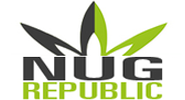Does CBD Get You High?
Over the last few years, cannabis legalization has garnered tremendous momentum, with marijuana now legalized in several states thanks to the 2016 and 2018 elections. However, the groundbreaking Agriculture Improvement Act of 2018 set the stage for cannabis legalization at the federal level. Now, with very few exceptions, you can consume legal hemp and hemp derivatives throughout the U.S.
To clarify, not all cannabis products are legal under the federal legislation, which is better known as the 2018 Farm Bill. The U.S. government has carefully defined what it deems legal, which is industrial hemp which contains no more than 0.3% tetrahydrocannabinol (THC) content. Additionally, hemp derivatives that meet the THC limitation requirement are now federally acceptable.
Of course, the most popular derivative is cannabidiol or CBD for short. CBD is the second-most potent cannabinoid or organic compound inherent to the cannabis sativa plant. Currently, researchers have discovered over a hundred cannabinoids, with CBD and THC being the two most prevalent examples.
Undoubtedly, the primary reason for the immense popularity of cannabidiol is its similar therapeutic potential to marijuana, but without the undesirable (and illegal) capacity to impose a “high.” As such, CBD products such as oil tinctures and gummies, provide the best of both worlds: the much-storied benefits of cannabis-infused solutions and none of the potentially debilitating aftereffects of THC.
Understandably, though, many newcomers to the world of botany have reservations. Namely, CBD sounds too good to be true. Can you really trust that CBD will not get you high?
CBD Will Not Get You High
We can appreciate where botanical newcomers are coming from: typically, you wouldn’t trust a product that purports to offer consequence-free pleasure. For instance, a greasy pepperoni pizza may satisfy your hunger at the moment, but you’ll pay for it with a few more laps around the track!
But with cannabidiol, this “duality” is as good as advertised: you can enjoy the myriad benefits associated with medicinal cannabis (particularly full spectrum CBD products, which we’ll get to later) but without getting "high".
Principally, we can “get away” with this statement because if it were not true, the entire botanical industry would face severe civil and possibly criminal penalties. This wouldn’t be good for business, to say the least.
More importantly, extensive scientific data on the subject reveals what the industry has long known: CBD (again) will not get you high. According to one of the highest (no pun intended) authorities on the subject matter, the World Health Organization submitted a report in November 2017 that distinguished the debilitating effects of THC and the relatively benign nature of CBD. Based on their findings:
“…in a study of healthy volunteers administered 200mg oral CBD, CBD did not produce any impairments of motor or psychomotor performance…A number of other studies involving high doses of CBD…concluded that [they] consistently fail to demonstrate significant effects or demonstrate effects opposite to those of THC.
Although certain advocacy groups have a vested interest in taking down CBD as a “gateway” to “real” cannabis products, emotions can only get you so far. Here, the evidential science offers an unambiguous conclusion: CBD and THC are different cannabinoids and therefore catalyze different reactions.
Identical But Worlds Apart
Despite an abundance of evidence indicating that CBD will not get you high, misconceptions continue to sour the cannabidiol market. Part of the “problem” is that on a molecular basis, CBD and THC are indeed very similar; in fact, they’re identical. Both contain 21 carbon atoms, 30 hydrogen atoms and 2 oxygen atoms.
Where the difference lies is in their molecular arrangement. Although a small difference to the lay observer, in the molecular arena, such small-scaled differences impart dramatic variances in end-user effects.
The core reason why THC is so impairing – especially when consumed in substantial volume – is that it binds to our bodies’ endocannabinoid receptors, which then catalyze certain reactions. Specifically, THC binds to CB1 receptors in the brain that are responsible for feelings of euphoria and relaxation. Additionally, the binding of THC to cerebrally located CB1 receptors contributes to anti-anxiety expressions, in addition to short-term memory impairment.
Thus, while a little bit of THC may offer benefits regarding general feelings of anxiety, overdoing it creates other symptoms that are undesirable to actively working professionals. The beauty of CBD, though, is that it offers a modulated pick-me-up – similar to what you may experience from drinking a cup of black tea – but without the impairment of THC.
How does it go about this business? Because CBD and THC are structurally identical (again, the only difference being molecular arrangement), cannabidiol also connects to CB1 receptors, but via a different pathway. This small variance is big enough to not trigger negative psychoactive effects. Though anecdotal, many botanical enthusiasts have used CBD to help wind themselves down after a “bad trip.”
While the granularity of CBD and THC is complex and leads to misunderstandings, the vital point remains the same: as the World Health Organization emphasized, CBD does not get you high.
A Lesson in Spectrum
Another factor that often leads to confusion among botanical newcomers is the many spectrums of cannabidiol. Currently, three distinct spectrums exist: full, isolate, and broad.
Arguably, most enthusiasts are familiar with full spectrum CBD. Essentially, this is CBD in its “raw” or natural form. Such products contain CBD, several other cannabinoids and possibly a trace, legal amount of THC. As such, full spectrum CBD best facilitate the “entourage effect” – the symbiotic cooperative functioning among the cannabinoids in a cannabis-based product.
For those who seek therapeutic benefits, full spectrum may be the ideal platform because, generally speaking, more cannabinoids translate to higher potency and effectiveness. Nevertheless, the presence of THC may be concerning to those who may have to undertake drug testing.
Although pinging positive for such tests is unlikely, to help put minds at ease, botanical manufacturers offer CBD isolate products. As the name suggests, these solutions offer CBD and only CBD – no other cannabinoids or terpenes (essential oils) are present. As we have consistently mentioned, because CBD will not get you high, you likely will not suffer a negative result on a drug test.
However, the one major drawback for CBD isolate is the inability to facilitate the entourage effect (due to no other cannabinoids present). To meet this need, manufacturers innovated a solution called broad spectrum. These products contain CBD, other non-psychoactive cannabinoids and terpenes, but no THC. Here, you really can get the best of both worlds, with one exception: broad spectrum tends to be more expensive than its full spectrum counterpart.
Nevertheless, don’t lose sight of the most important factor: if you’re not facing any drug tests, the matter of spectrum largely comes down to personal preference. As non-psychoactive compounds, CBD usage – even heavy, frequent dosages – will not impart a high nor the many other negative side effects associated with THC. This has been verified through extensive studies and research, along with the personal testimonies of avid botanical enthusiasts.














